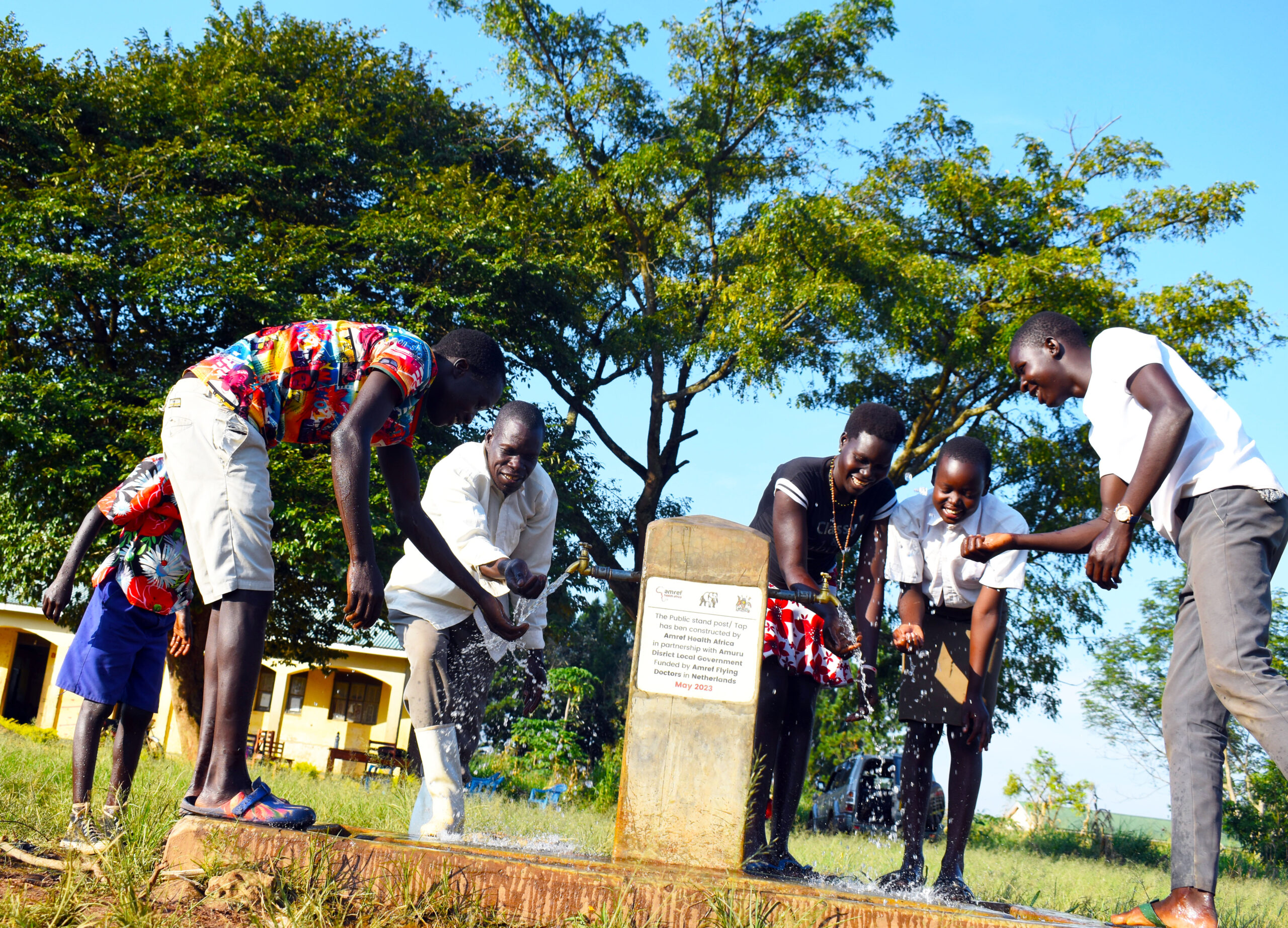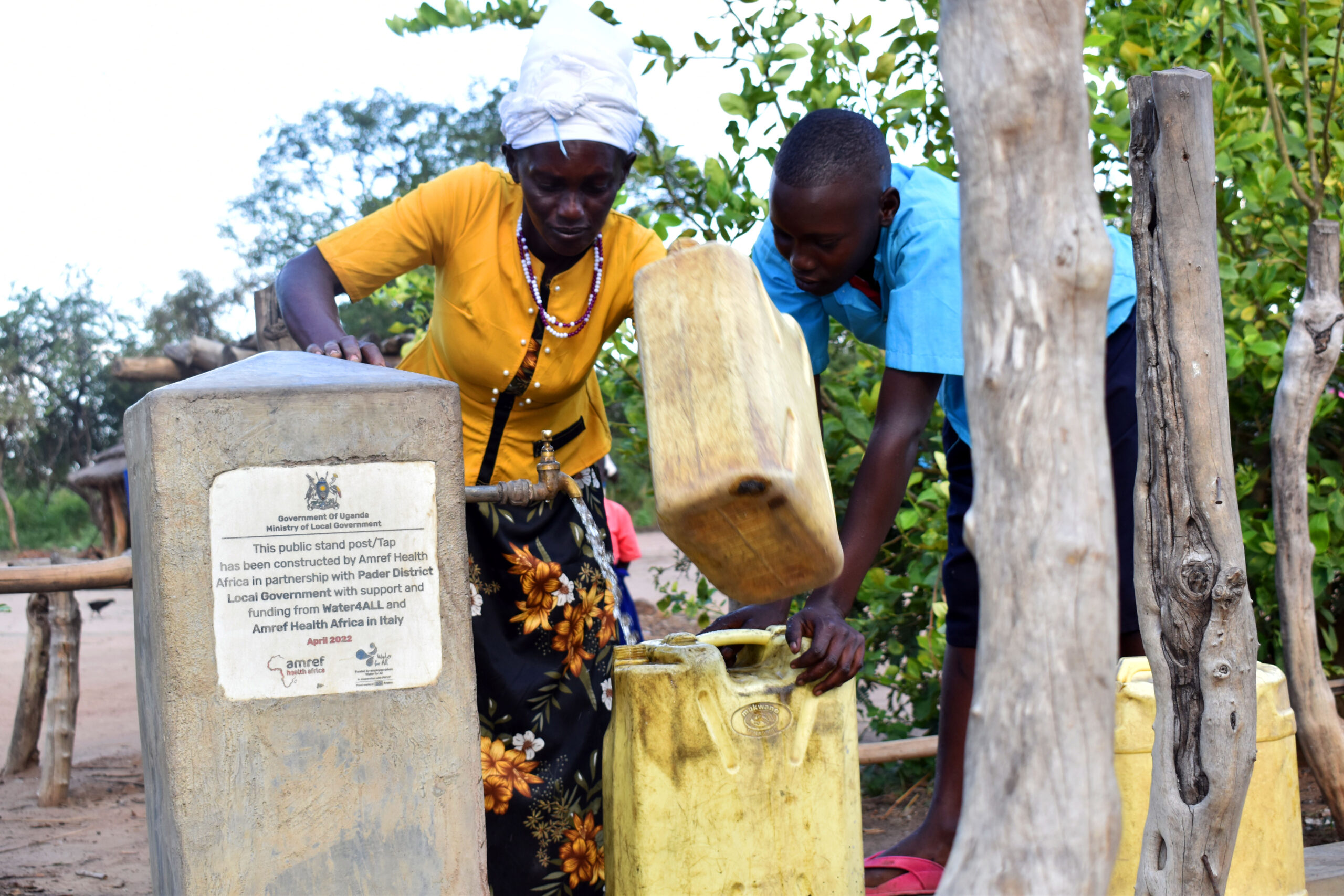Maureen Katusiime’s interview – commemorating women’s day
Thursday, 15 April, 2021

Maureen Katusiime is a Research Manager- Amref Health Africa in Uganda
The theme for the International Women’s Day (and month) is “Women in leadership: Achieving an equal future in C19 world”. What does this theme mean to you as a woman and leader?
As a woman and leader, this theme celebrates the incredible contribution made by women and girls globally in modelling an equal future and recovery from the COVID-19 pandemic. The COVID-19 pandemic has proved to the world that women have the necessary skills, knowledge and capabilities to effectively prepare, lead and respond to pandemics.
This theme also reinforces the importance of empowering women including adolescent girls and young women to continue participating and taking up leadership positions at national and global level in the space of pandemics and other public health emergencies. Women continue to be disproportionately affected by issues such as sexual and reproductive ill health, gender inequality, social and systemic barriers, poverty and unemployment, limited education opportunities, gender based violence among other factors whose effects were worsened by the COVID-19 pandemic. These have persistently kept women at the bottom.
We recognize the role you have played in advancing healthcare, more specifically, the Family Planning sector for Uganda; Please tell us, specifically, what your efforts have been over the years.
- Through different roles i have undertaken in my career and working closely with counterparts in the health sector, I have provided family planning services to women as a health service provider. I have also built the capacity of the Ugandan health system; (both private and public sector) through trainings and mentorships of health providers, equipped facilities with equipment and commodities to provide and scale-up family planning services especially the long acting reversible methods.
- I have contributed to advocacy efforts and development of policy guidelines such as the emergency contraception, review of training, Information, Education and Communication materials on Family planning among others.
- I have conducted research on Family planning, which has informed practice at various levels of the Ugandan health system. Such as Integration of family planning with other health services to increase uptake and service provision among women in selected communities in Uganda among others.
What has been the greatest challenge whilst executing your role in Family Planning for Uganda at large?
- Gender-social norms and policy issues continue to affect uptake and adherence/compliance to Family planning especially among adolescent girls and young women. Many times a woman would opt for a family planning method only to return immediately after being forced by her male partner to have it removed either because they did not support it or were not consulted.
- Secondly, a lack of a clear age of consent for Family planning stipulated in our policy guidelines continues to affect family planning service provision and uptake among girls and young women even when there is evidence for sexual activity. Our counterparts in the HIV/AIDS sector have a clear age of consent for HIV testing which is 12 years; this has contributed to adolescents knowing their HIV status unlike before. A similar shift is needed for SRHR service delivery including contraceptives.
What were some of the specific challenges especially during Covid-19 period?
- Ensuring access for women to their preferred contraceptive method of choice especially during the COVID-19 lock down was a challenge. With the travel restrictions in place, women could not access health facilities to collect contraceptives; for those who succeeded, the health provider either not have available or the method of choice out of stock. Initially family planning was not looked at as an emergency at the initial stages of COVID-19 response although this was later revised with the development of continuity of essential care services guidelines.
- Secondly, the rising cases of sexual violence among women and adolescent girls led to arise in unplanned pregnancies among adult women and teenage pregnancies. Some of these pregnancies could have been prevented if these women had access to emergency contraception.
- A number of women are not empowered economically. They do not have financial freedom to make choices regarding their health; this became worse during COVID-19 where some lost their jobs. For example, use of a facemask was one of the COVID-19 prevention measure put in place. Much as we were preventing the spread of COVID-19, we may not run away from the limitation caused especially among adolescent girls and women who could not access SRHR services including contraceptives at health facilities since they could not afford a facemask.
A significant portion of women who would like to space, limit or stop births are still unable to use family planning. In Covid19 period, women still experienced more challenges in accessing FP, even when the services and commodities are available. In your opinion, what can be done to encourage up take and use of family planning services and commodities across Uganda?
- We need to scale-up the last end mile distribution; so that contraceptive commodities are not only picked at the health facilities but rather health providers get out of the facilities to meet with these women in their communities; such as at water collection points, community markets etc; these family planning commodities need to be within the reach of a woman anytime.
- Secondly we need a multi-sectoral approach; scale-up the concept of integrating family planning with other service areas such as Water Sanitation and Hygiene (WASH), Gender office, Judiciary, Police among others. For example, a woman visiting a Gender Based Violence (GBV) clinic/ unit or TB or HIV or other clinic departments should leave having received information and counselling of family planning and where to access the methods.
- We need to digitalize/ use technology to increase awareness about available contraceptive options including family planning consultations and rebrand family planning so that it is acceptable to all groups: women, males, religious, cultural, political groups.
- Continuous involvement of males in women empowerment initiatives especially the economic aspect, these males also need to understand family planning so that they can support their partners in taking up and complying with the family planning methods.
- Lastly, we need to continuously document and disseminate widely results of new initiatives that are causing positive change for scale-up to other communities.
What role do you see self-care playing in bridging the gap of unmet need for family planning?
- The World Health Organization defines self-care as the ability of individuals, families and communities to promote health, prevent disease, maintain health, and to cope with illness and disability with or without the support of a health worker. Self-care can bridge the gap of unmet need for family planning by having women to take charge of their own health. For example, through access to information on SRHR, family planning, the self-injectable contraceptives (subcutaneous DMPA) which women have embraced; they do not necessarily need support of the health care provider to mention but a few.
What can stakeholders do to support efforts by the ministry to drive uptake and use of family planning across communities?
- Stakeholders need to work with ministry to fast track the approval and implementation of the research agenda for family planning in Uganda in order to guide evidence-based decisions and implementation of interventions to improve family planning uptake across communities.
- Secondly, they need to advocate for an enabling policy and legal environment for provision of family planning through revision of certain policies and laws to consider integration of SRHR including Family planning, GBV, with other services; implement supportive policies and legal frameworks. Strengthening health systems for integration of family planning with other service delivery channels putting in mind the context of epidemics and public health emergencies is equally important.
- Lastly, adequate funding for family planning initiatives including a component on empowering women economically is still needed if we are to achieve universal health coverage. Uganda continues to suffer the high-unmet need for family planning currently at 28%, yet the country target is to reduce it to 10% and increase contraceptive prevalence rate to 50% by 2020. Stakeholders need to continue looking out for funding opportunities to complement ministry efforts
Amref Health Africa teams up with African communities to create lasting health change.



